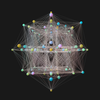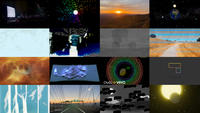Center for Computer Research in Music and Acoustics
Upcoming Events
Stanford Cinematheque: FILM BODIES

The ½ Core+ is Constantin Basica, Chris Chafe, Kimia Koochakzadeh-Yazdi, and Fernando Lopez-Lezcano.
Vilbjørg Broch: Reflections

6-7pm Pre-Show Talk
Jill Kries - How the brain encode speech and language with aging and aphasia

Abstract:
Recent Events
Concepts and Control: Understanding Creativity in Deep Music Generation

Abstract: Recently, generative AI has achieved impressive results in music generation. Yet, the challenge remains: how can these models be meaningfully applied in real-world music creation, for both professional and amateur musicians? We argue that what’s missing is an interpretable generative architecture—one that captures music concepts and their relations, which can be so finely nuanced that they defy straightforward description. In this talk, I will explore various approaches to creating such an architecture, demonstrating how it enhances control and interaction in music generation.
Nat Condit-Schultz on Tempo, Tactus, Rhythm, Flow: Computational Hip Hop Musicology in Theory and Practice

The New Sound of New Music: Contemporary Composition and Modern Record Production Practices, two part lecture series with Murat Çolak

Homage to Ligeti | CCRMA 50th Anniversary

FREE and Open to the Public | In Person + Livestream
Past Live Streamed Events
Recent News
Hearables Will Monitor Your Brain and Body to Augment Your Life, by Poppy Crum
Quote from the article:
ARTFUL DESIGN — A new (comic) book by Ge Wang!

What is the nature of design, and the meaning it holds in human life? What does it mean to design well -- to design ethically? How can the shaping of technology reflect our values as human beings? These are the questions addressed in Ge Wang's new book, ARTFUL DESIGN (check it out: https://artful.design/).
Technology that Knows What You're Feeling: TED2018 Talk Featuring Dr. Poppy Crum
What happens when technology knows more about us than we do? Poppy Crum studies how we express emotions -- and she suggests the end of the poker face is near, as new tech makes it easy to see the signals that give away how we're feeling. In a talk and demo, she shows how "empathetic technology" can read physical signals like body temperature and the chemical composition of our breath to inform on our emotional state. For better or for worse. "If we recognize the power of becoming technological empaths, we get this opportunity where technology can help us bridge the emotional and cognitive divide," Crum says.
CCRMA's SLOrk Featured in Wired Magazine
The Aural Magic of Stanford's Laptop Orchestra

CCRMA: Award-winning Faculty!
Way to go, Poppy!
CTA Honors Five for Outstanding Contributions to Tech Industry Initiatives and Standards


